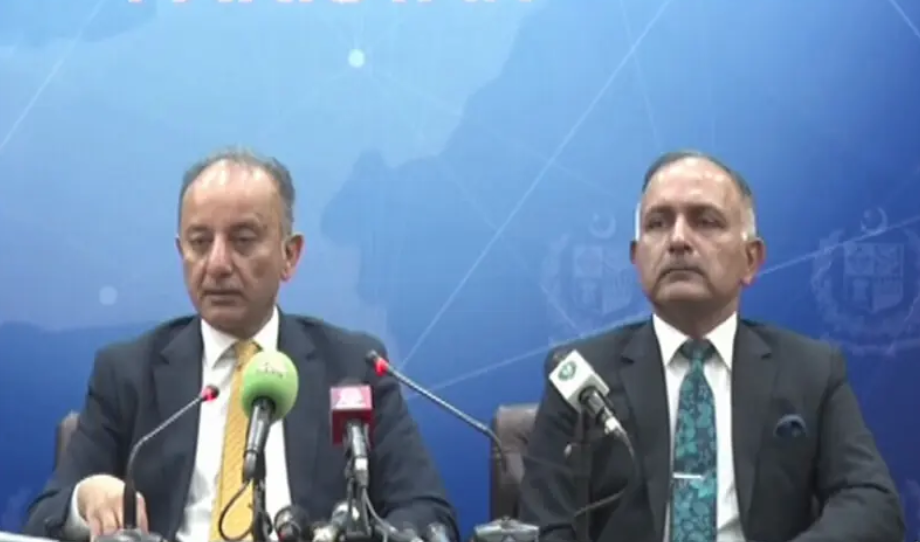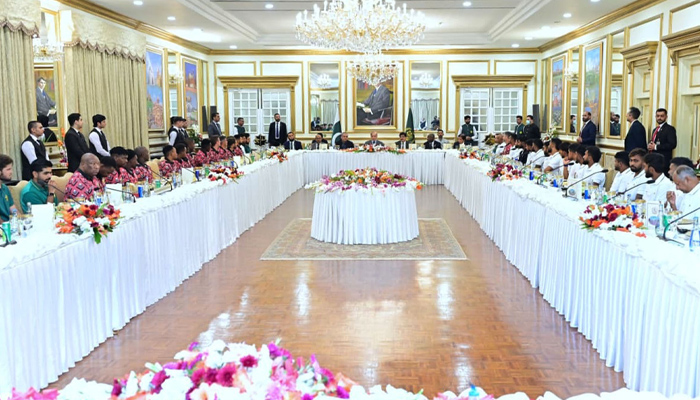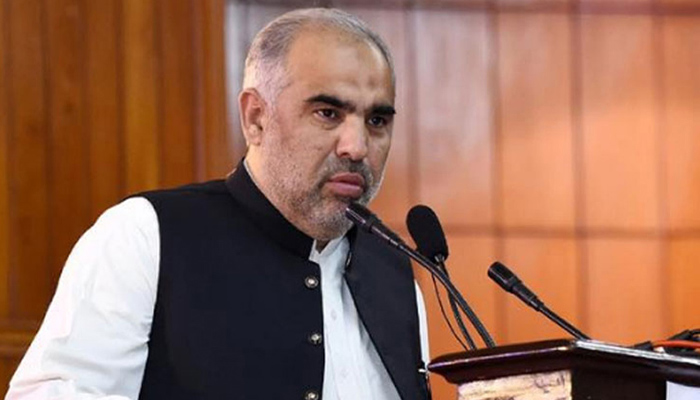POLITICS & POLICY MAKING
Pakistan’s Climate Minister Urges Political Focus on Climate-Induced Disasters, Plans for Monsoon 2024

Dr. Musadik Malik, Pakistan’s Minister for Climate Change, stressed that climate-induced disasters should be treated as a political priority, reflecting the urgency of addressing the country’s vulnerability to extreme weather events. The minister outlined both short- and long-term strategies for mitigating the effects of these disasters, particularly in preparation for the upcoming 2024 monsoon season.
Climate-Induced Disasters: A Growing Threat
Pakistan is increasingly experiencing the devastating effects of climate change, with floods, landslides, and displacement becoming regular occurrences, especially during the monsoon season. The monsoon rains, which are crucial for replenishing water supplies, also bring the risk of deadly flooding, particularly in regions that are poorly drained or densely populated.
This year’s floods in Punjab alone impacted over 4.7 million people, affecting more than 4,700 villages. The devastation follows a trend of repeated flooding disasters, with over 4,500 lives lost since 2010 due to similar events. Dr. Malik emphasized the gravity of the situation, stating, “This many people don’t die in wars,” highlighting the scale of the human toll from climate-induced disasters.
Government's Plan for Disaster Preparedness and Response
Dr. Malik provided a detailed strategy to address the looming threats posed by the monsoon season and other extreme weather events. A key part of the government's plan includes a three-tier approach aimed at both immediate repairs and long-term resilience.
1. Phase 1 (240-250 Days): The first phase will focus on repairing the critical infrastructure that has been damaged, particularly flood protection systems such as dykes and floodgates. This phase will be aimed at fixing what is broken and preventing further loss of life and property.
2. Phase 2 (1-3 Years): In the medium-term, the government plans to upgrade undersized infrastructure, particularly in cities like Karachi where drainage systems have failed during past floods. This phase will ensure that cities are better prepared for future weather events.
3. Phase 3 (3-5 Years): A longer-term phase will focus on building resilient systems that can withstand the growing threat of climate change. This includes strengthening flood defenses, improving water management systems, and building infrastructure capable of handling more extreme weather events.
Local-Level Action and Early Warning Systems
One of the key strategies for 2024 involves decentralizing disaster management. Dr. Malik emphasized the need for early warning systems to be integrated at the tehsil (sub-district) and district levels, allowing local administrations to act quickly when disasters strike. “Shifting the alerts away from Islamabad will enable more timely responses by local authorities,” he said.
In addition, the government is planning immediate support for those displaced by flooding. This includes establishing temporary schools for children who have been forced from their homes, deploying mobile healthcare units to provide care for flood survivors, and offering community-level training in vulnerable areas to build local resilience.
NDMA's Forecast and Provincial Coordination
Lieutenant General Inam Haider Malik, Chairman of the National Disaster Management Authority (NDMA), reiterated the urgent need for coordinated efforts at the federal and provincial levels. Pakistan, one of the most climate-affected countries in the world, faces an increasing risk of more intense weather in the years ahead. According to NDMA forecasts, the 2026 monsoon season could bring weather events that are 22% to 26% more intense than the already challenging conditions faced this year.
“We must work together at all levels of government,” he said, stressing that while disaster management is a devolved subject under Pakistan’s Constitution, effective coordination between provinces and the federal government is crucial to minimizing losses.
Tourism and Movement Restrictions for 2024
In a preventive measure, the NDMA has also proposed controlling tourism and public movement during peak months of the monsoon, particularly June and July, to mitigate the risk of displacement and damage from floods. Such restrictions will help reduce the pressure on vulnerable regions during the most critical period of heavy rains.
The Political Discourse on Climate Change
Dr. Malik's statement about treating climate-induced disasters as a "political priority" reflects the urgency with which the government is seeking to address the long-term impacts of climate change. In Pakistan, political discourse often overlooks the issue of climate vulnerability, despite its far-reaching effects on lives and livelihoods. Dr. Malik called for climate resilience to become central to the national political agenda, noting that it was the “core” issue around which the country’s political discourse should evolve.
The prime minister recently chaired a meeting in which various experts and officials presented assessments on different types of flooding risks, including riverine flooding, mountain torrents, and urban flooding. The minister’s comments underline the need for a holistic approach to disaster management, incorporating both immediate action and long-term resilience.
Conclusion
With the country bracing for more extreme weather events in the coming years, Dr. Musadik Malik's message is clear: climate change must become a central issue for Pakistan’s political and policy agendas. The government's multi-tiered approach to disaster management—focusing on repair, upgrading infrastructure, and building long-term resilience—offers a comprehensive roadmap for mitigating the devastating effects of floods and other climate-induced disasters.
As Pakistan prepares for the next monsoon season, it remains to be seen how effectively the government can implement these strategies, mobilize resources, and ensure the involvement of all levels of government in disaster preparedness and response.




